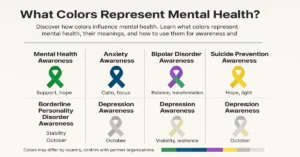Key Intake
Q1: What to pack when studying abroad in Europe long term?
Bring 2 suitcases max: documents, layers, electronics, and versatile shoes. Buy bulky items like bedding and toiletries locally.
Q2: How to avoid overpacking for study abroad trips?
Use packing cubes, stick to a 7-day clothing rotation, and avoid duplicates. Leave space for souvenirs.
Q3: Which clothes are best for Europe’s mixed weather?
Layer-friendly staples: waterproof jacket, sweaters, jeans, and sneakers. Add gloves or scarves in winter.
Q4: What toiletries are needed for studying abroad in Europe?
Travel-size shampoo, toothpaste, deodorant, and essential meds. Skip big bottles, buy them abroad.
Q5: What travel documents should students bring to Europe?
Passport, visa, health insurance card, arrival guide, and emergency contacts in the local language
Q6: How to pack light but still be prepared abroad?
Choose multipurpose clothing, compress items with cubes, and use carry-on for short trips.
Table of Contents
Introduction
Packing for a semester in Europe can feel overwhelming, but it doesn’t have to be. Nearly 60% of study abroad students say they overpacked on their first trip (NAFSA, 2024), while airline fees for overweight luggage can cost $100+ per bag (Eurostat data). According to CIEE, most students only use about 70% of what they bring abroad. That’s why knowing what to pack when studying abroad in Europe is less about stuffing a suitcase and more about choosing the right essentials. The smartest travelers focus on versatility, cultural fit, and items that save both space and stress.
Instant Answer
Students packing for study abroad in Europe should bring layered clothing, comfortable walking shoes, travel documents, adapters, prescription medicine, and lightweight luggage. Add only essentials, avoid bulky toiletries, and leave room for souvenirs.
This means building a list that balances documents, clothing, electronics, health items, and personal comforts, while staying under airline limits.
1. Documents & Essentials Every Student Must Carry

Forget these and your trip won’t start. Students must pack:
- Passport + Visa (valid for entire stay, plus photocopies).
- Health insurance card and prescriptions with a doctor’s letter.
- Arrival guide + program contacts (in local language).
- Student ID + emergency numbers stored digitally and in print.
Key Intake: Your documents are your lifeline. Keep copies in separate bags.
Want to see what real students actually packed and used in Europe? This quick video shows the essentials in action.
What I *ACTUALLY* needed for study abroad 2025 packing list with links
2. Clothing: Dress for Layers, Not Closets
Europe’s weather changes fast. Pack smart layers:
- 2 sweaters, 1 waterproof jacket, 1 light jacket.
- 3-4 versatile bottoms (jeans, neutral pants).
- 7-8 tops that mix and match.
- Comfortable sneakers + weatherproof shoes.
- Seasonal extras: gloves, scarf, hat.
Tip: Exchange students often regret bulky items, locals shop seasonal fashion cheaply at H&M or Zara.
3. Electronics: Stay Powered Everywhere

Your tech won’t survive without the right gear. Students need:
- European plug adapters + universal converter.
- Portable power bank (hostels often lack outlets).
- Phone, laptop, chargers.
- Optional: Kindle/tablet instead of multiple books.
There are over 7 different plug types in Europe (IEC data). Don’t assume one adapter fits all.
4. Toiletries: Pack Light, Buy Local

Most toiletries are easy to find in Europe. Bring only:
- Travel-sized shampoo, soap, toothpaste (first week).
- Prescription meds (enough for stay).
- Small first-aid kit (bandages, pain relief).
- Compact laundry bag.
What not to pack: Huge shampoo bottles, hair dryers, heavy liquids. Local stores (Boots, Carrefour) carry them cheaply.
5. Luggage: Carry-On vs. Checked Bags
Airlines are strict. Here’s the breakdown:
| Option | Best For | Limitations |
| Carry-On Only | Budget travelers, weekend trips | Limited space, liquids rule |
| Checked Bag | Long-term interns, parents packing extras | Risk of lost luggage, fees |
Pro Tip: Packing cubes cut bulk by 30%. Students using them reported easier airport checks (Travel + Leisure).
6. Professional vs. Casual: Students on Internships
Interns struggle with wardrobe balance. Solution:
- 2 professional outfits (blazer, neutral shoes).
- 5 casual staples that layer.
- 1 versatile dress/skirt or slacks.
This means you can attend office meetings without wasting luggage space.
7. Adventure Gear: Weekend Trips & Hostels

Europe = cheap flights and weekend getaways. Adventure seekers should pack:
- Foldable backpack for Ryanair/EasyJet trips.
- Quick-dry towel for hostels.
- Durable crossbody bag (anti-pickpocket).
- Travel journal for memories.
Why it matters: Students average 5–7 weekend trips during study abroad (CIEE 2023). Be ready.
Sources
- CIEE: What to Pack When Studying Abroad in Europe. A leading student exchange organization offering practical packing advice tailored for Europe.
- Times Higher Education: International Packing Checklist. Trusted global education resource providing an academic-oriented packing framework.
- GoAbroad: How to Pack for Study Abroad in Europe. A comprehensive student travel platform with region-specific insights.
- Secure My Scholarship: Student Approved Study Abroad Packing List 2026. A modern, student-tested packing breakdown emphasizing practicality.
- Asia Exchange: Packing Checklist for International Students 2024. A well-structured guide tailored for long-term exchange students.
Final Thoughts
Packing isn’t about filling bags, it’s about future-proofing your journey. From weather-ready outfits to adapters and documents, the right essentials help you avoid stress, save money, and focus on what really matters living in Europe, not lugging it. When you know what to pack when studying abroad in Europe, you’re not just traveling lighter, you’re setting yourself up for a semester of freedom, confidence, and unforgettable experiences.
AuthorBio
Sofia Renaldi is a Travel Program Advisor with 12+ years guiding international students on study abroad essentials.
Before you dive straight into packing, here’s your one-stop guide to stress-free packing so you land in Europe ready, not overloaded.
→Ultimate Study Abroad Packing List: Essentials You Can’t Forget!











